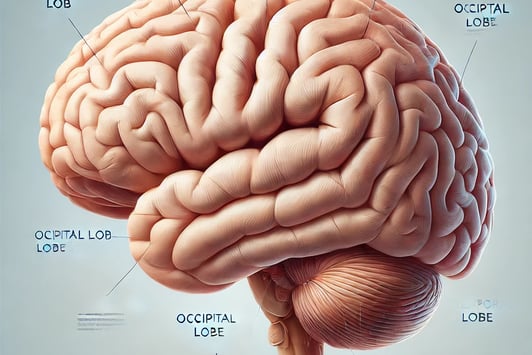AMAZING natural health products backed by research
Tocotrienols for Brain Health & Neurodegenerative Diseases
Discover how incorporating tocotrienols into treatment protocols can enhance brain health and improve outcomes for patients with neurodegenerative diseases like stroke, Alzheimer's, and Parkinson's. Explore the benefits today!
AlexanderJ
3 min read


1. Neuroprotective Properties of Tocotrienol
Mechanism of Action:
Tocotrienols, particularly α-tocotrienol, have been shown to protect brain cells from neurodegeneration. This protection is largely due to their ability to inhibit key pathways involved in cell death, such as the c-Src kinase pathway, which is activated during stroke and other neurodegenerative conditions.
Oxidative Stress Reduction:
Tocotrienols exhibit superior antioxidant properties compared to tocopherols, enabling them to effectively neutralize free radicals and reduce oxidative stress in the brain. This reduction in oxidative stress is crucial in preventing and managing conditions like Alzheimer's disease and other forms of dementia.
2. Anti-Inflammatory Effects
Inhibition of Inflammatory Pathways:
Tocotrienols have been demonstrated to downregulate key inflammatory markers such as IL-6, TNF-α, and COX-2. Chronic inflammation is a contributing factor to neurodegenerative diseases, and tocotrienols' ability to reduce inflammation suggests their potential in mitigating the progression of these diseases.
Enhancement of Brain Function:
By reducing inflammation and oxidative stress, tocotrienols can enhance cognitive function and slow the progression of neurodegenerative diseases. This is particularly relevant for diseases like Parkinson's and Alzheimer's.
3. Neurogenesis and Cognitive Enhancement
Promotion of Neurogenesis: Tocotrienols have been shown to stimulate neurogenesis, the process by which new neurons are formed in the brain. This is crucial for brain repair and cognitive function, particularly in aging populations.
Cognitive Benefits:
Clinical studies cited in the paper demonstrate that tocotrienol supplementation can lead to improved cognitive performance in both healthy individuals and those with mild cognitive impairment.
Effectiveness in Treating Brain Diseases
1. Stroke and Ischemia
Reduction in Brain Lesions:
Tocotrienols have been found to reduce the size of brain lesions following ischemic events (such as strokes). This is due to their ability to inhibit glutamate-induced toxicity and reduce excitotoxicity, which are major contributors to neuronal death during strokes.
Enhanced Recovery:
Patients receiving tocotrienol supplementation post-stroke have shown improved recovery outcomes, including better motor function and reduced brain damage, compared to those who did not receive tocotrienols.
2. Alzheimer's Disease
Prevention of Amyloid Plaque Formation:
Tocotrienols have been shown to inhibit the formation of amyloid plaques, which are characteristic of Alzheimer's disease. This is achieved through their ability to modulate pathways involved in protein aggregation and reduce oxidative damage to neurons.
Slowing Disease Progression:
The paper suggests that tocotrienols, through their anti-inflammatory and antioxidant effects, can slow the progression of Alzheimer's disease and improve the quality of life for patients.
3. Parkinson's Disease
Protection Against Dopaminergic Neuron Loss:
Tocotrienols have been reported to protect dopaminergic neurons, which are progressively lost in Parkinson's disease. This protection is thought to be due to tocotrienols' ability to reduce oxidative stress and inhibit apoptotic pathways in neurons.
Improvement in Motor Function: Clinical data indicate that tocotrienol supplementation may lead to improvements in motor function and reduce the severity of symptoms in Parkinson's patients.
Clinical Recommendations Based on Research
Supplementation Protocols:
Dosage:
The paper recommends specific dosages of tocotrienol for neuroprotection, typically ranging from 200 to 400 mg per day, depending on the severity of the condition and the specific form of tocotrienol being used.
Combination with Other Treatments:
Tocotrienols may be used in conjunction with other standard treatments for neurodegenerative diseases to enhance overall efficacy and patient outcomes.
Target Populations:
At-Risk Individuals: Tocotrienol supplementation is particularly recommended for individuals at high risk of neurodegenerative diseases, including those with a family history of Alzheimer's or Parkinson's disease.
Elderly Populations:
Given the age-related decline in antioxidant defenses and increased oxidative stress, elderly individuals may benefit significantly from tocotrienol supplementation to maintain cognitive health.
Conclusion and Implications for Future Research
The research paper strongly supports the therapeutic potential of tocotrienols in treating and preventing diseases of the brain, particularly through their antioxidant, anti-inflammatory, and neurogenic properties. Future research is recommended to further elucidate the mechanisms of action, optimal dosages, and long-term effects of tocotrienol supplementation in diverse populations.
Incorporating tocotrienols into treatment protocols for neurodegenerative diseases holds promise for improving patient outcomes and quality of life, particularly in conditions like stroke, Alzheimer's, and Parkinson's disease.
Reference: Ranasinghe, R., Mathai, M., & Zulli, A. (2022). Revisiting the therapeutic potential of tocotrienol. Pharmacological Research, 181, 106269. https://doi.org/10.1016/j.phrs.2022.106269
URL: Revisiting the therapeutic potential of tocotrienol
